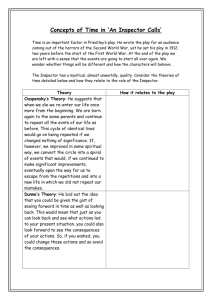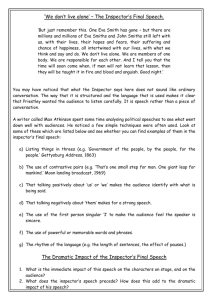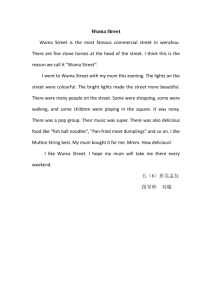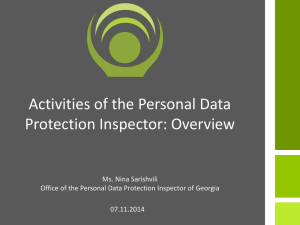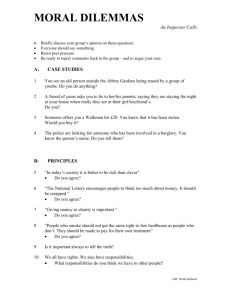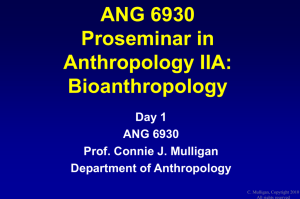An Inspector Calls- Historical and Social context
advertisement
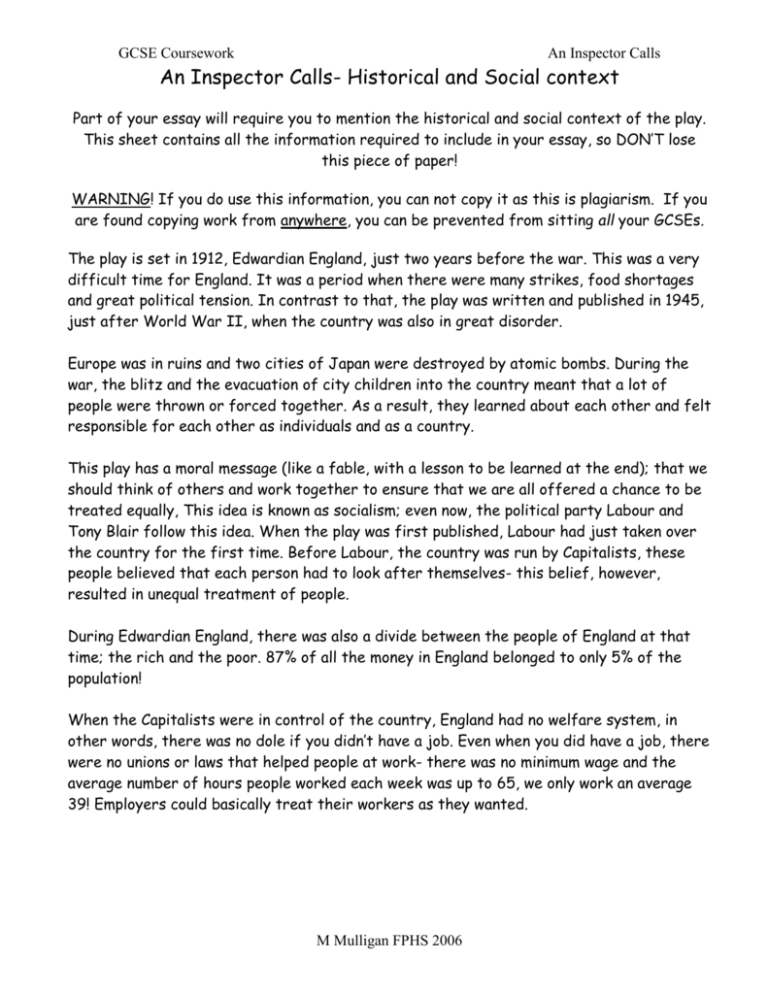
GCSE Coursework An Inspector Calls An Inspector Calls- Historical and Social context Part of your essay will require you to mention the historical and social context of the play. This sheet contains all the information required to include in your essay, so DON’T lose this piece of paper! WARNING! If you do use this information, you can not copy it as this is plagiarism. If you are found copying work from anywhere, you can be prevented from sitting all your GCSEs. The play is set in 1912, Edwardian England, just two years before the war. This was a very difficult time for England. It was a period when there were many strikes, food shortages and great political tension. In contrast to that, the play was written and published in 1945, just after World War II, when the country was also in great disorder. Europe was in ruins and two cities of Japan were destroyed by atomic bombs. During the war, the blitz and the evacuation of city children into the country meant that a lot of people were thrown or forced together. As a result, they learned about each other and felt responsible for each other as individuals and as a country. This play has a moral message (like a fable, with a lesson to be learned at the end); that we should think of others and work together to ensure that we are all offered a chance to be treated equally, This idea is known as socialism; even now, the political party Labour and Tony Blair follow this idea. When the play was first published, Labour had just taken over the country for the first time. Before Labour, the country was run by Capitalists, these people believed that each person had to look after themselves- this belief, however, resulted in unequal treatment of people. During Edwardian England, there was also a divide between the people of England at that time; the rich and the poor. 87% of all the money in England belonged to only 5% of the population! When the Capitalists were in control of the country, England had no welfare system, in other words, there was no dole if you didn’t have a job. Even when you did have a job, there were no unions or laws that helped people at work- there was no minimum wage and the average number of hours people worked each week was up to 65, we only work an average 39! Employers could basically treat their workers as they wanted. M Mulligan FPHS 2006 GCSE Coursework An Inspector Calls The play is set in the fictional town Brumley; a northern town, like Bradford. Bradford had many factories, owned by rich people who paid very little for back breaking work. Women had fewer rights than men at the time and had not yet won the right to vote. They were not expected to work unless they were the lower class, then they would have to work to survive. The eldest male of any home would be the main breadwinner (the person who brings the money home), they were also in charge at home, and their word was law; a wife would never argue or answer back to her husband or eldest son. What families lived on during Edwardian Times Working Class Budget Middle Class Budget £1.12 per week £5.75 per week Rent 0.33 Rent 0.66 Social Club 0.01 Rates and Tax 0.23 Funeral insurance 0.04 Servant’s wages 0.34 Coal 0.04 Washing 0.50 Wood and lamp oil 0.03 Food and cleaning materials 1.50 Soap and soda 0.04 Repairs, replacements 0.19 Meat 0.16 Wine, beer, spirits 0.17 Husband’s dinners All other food Total Leftover 0.15 0.16 0.96 0.16 Coal, gas 0.38 Total Leftover 3.97 1.78 “If you’ve ever seen a tin of sardines you’ll know how we slept; three girls at the top, two boys at the bottom, the baby in a drawer in Mum’s room with Mum and Dad. We only had two rooms and a very tiny kitchen.” “If there’s anything extra to buy such as a pair of boots for one of the children, me and the children goes without dinner- or mebbe only ‘as a cuppa tea and a bit of bread, but Jim ‘ollers to take his dinner to work and I give it to ‘im as usual. He never knows we go without and I never tell him.” M Mulligan FPHS 2006
